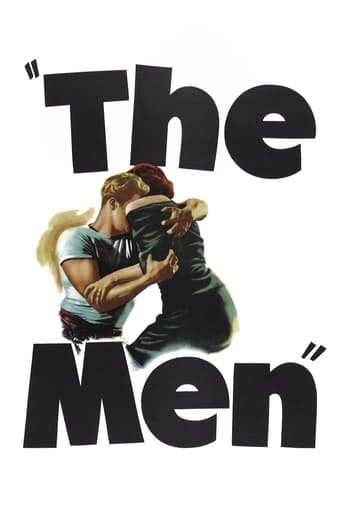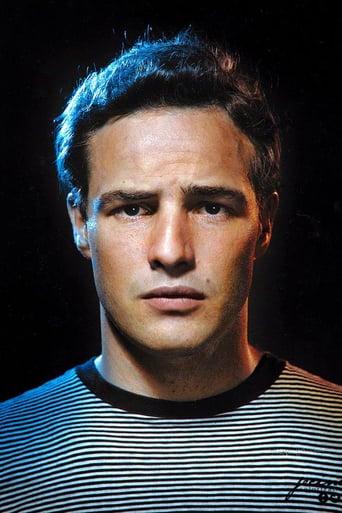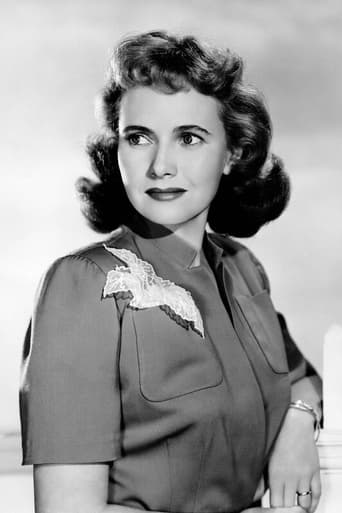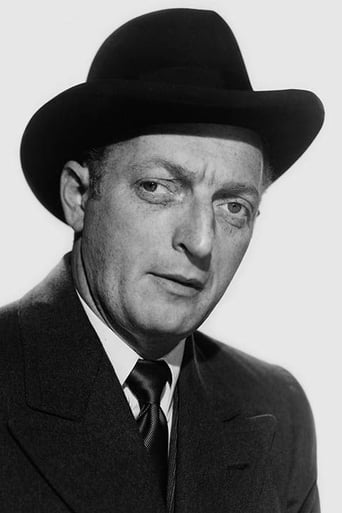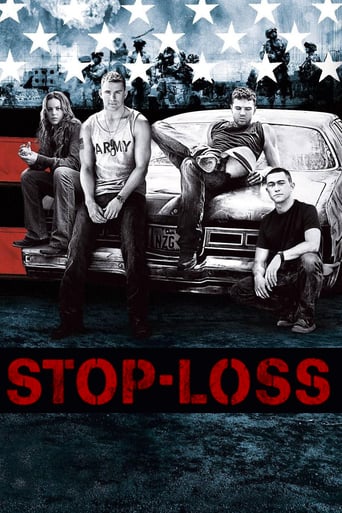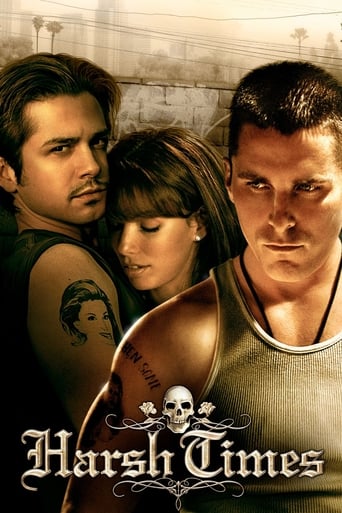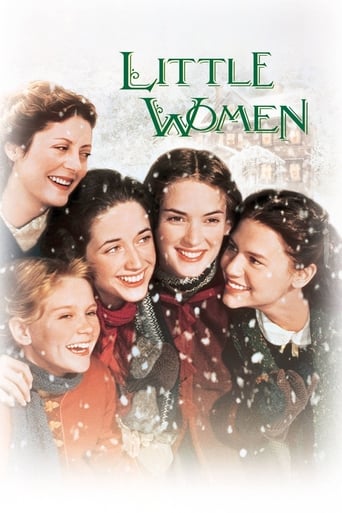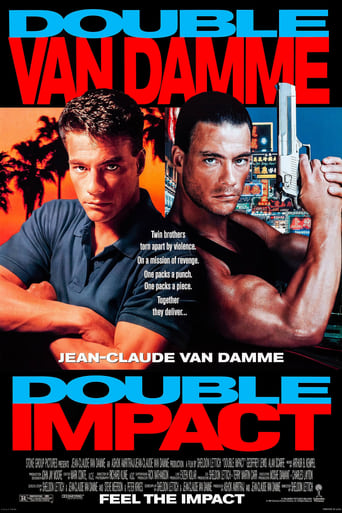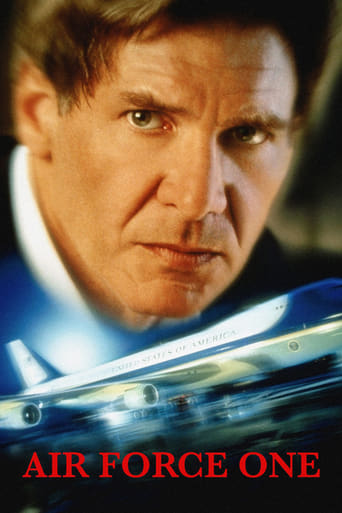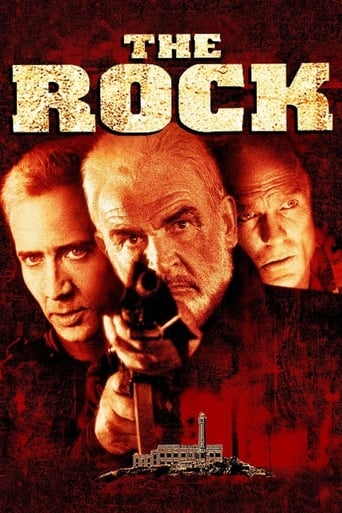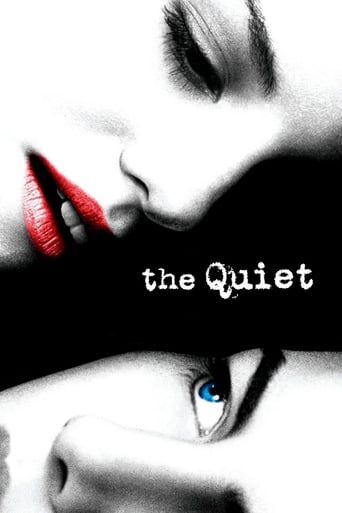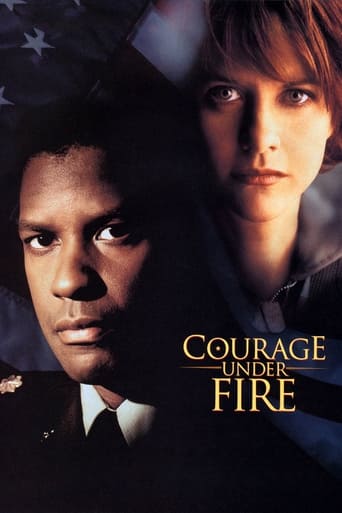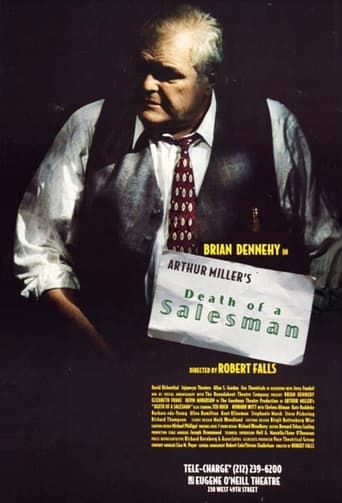The Men (1950)
Ken, an ex-WWII GI, returns home after he's paralyzed in battle. Residing in the paraplegic ward of a veteran's hospital and embittered by his condition, he refuses to see his fiancée and sinks into a solitary world of hatred and hostility. Head physician, Dr. Brock cajoles the withdrawn Ken into the life of the ward, where fellow patients Norm, Leo and Angel begin to pull him out of his spiritual dilemma.
Watch Trailer
Cast


Similar titles
Reviews
Sick Product of a Sick System
Load of rubbish!!
best movie i've ever seen.
Actress is magnificent and exudes a hypnotic screen presence in this affecting drama.
In the 1972 megahit "The Godfather," Marlon Brando, playing Don Vito Corleone, uttered one of the most quotable movie lines of that decade: "We'll make him an offer he can't refuse." But 22 years earlier, Brando was presented with an unrefuseable offer himself, after being given a chance to read Carl Foreman's script for the upcoming film "The Men." In 1950, the 26-year-old Brando had not yet appeared on screen, but since 1944 had been something of a sensation on Broadway, especially after portraying Stanley Kowalski in "A Streetcar Named Desire" in '47. An early member of the Actors Studio as well as being an early practitioner of "The Method," Brando could not pass up the chance to appear in producer Stanley Kramer's film concerning the plight of paraplegic servicemen and their rehabilitation process in a veterans' hospital. The actor apparently dove into his first screen role, spending weeks observing the inmates at the Birmingham Veterans Administration Hospital (in Van Nuys, California; not Alabama, as I initially assumed), where much of the film was later shot; 45 patients of the hospital also appear in the finished film. And, as might be expected, Brando is simply terrific, giving an emotionally complex performance, eliciting the viewer's affection, and clearly demonstrating to the world that a new screen star had arrived.When we first see Brando's Ken, he is an armed infantryman, a lieutenant prowling the deserted streets of an unnamed European town with his squad. A sniper's bullet catches Ken in the lower back, immediately paralyzing him from the waist down. A full year later, the ex-G.I. lies in a vets' hospital, sullen, withdrawn, angry, and completely antisocial. "I was afraid I was gonna die...now I'm afraid I'm gonna live," he thinks to himself. Fortunately for Ken, his doctor, Brock (a hugely ingratiating performance here from Everett Sloane), moves him from his private room to a ward with other men, in the hopes that a little social interaction might do him some good. Though initially surly to his three immediate neighbors--Norm (a goateed Jack Webb, here in one of his earliest roles at age 30, and right before appearing in "Sunset Blvd.," which was released just two weeks after "The Men"), Angel (a muscular Hispanic dude, the nicest guy on the floor, and well played by Arthur Jurado) and wheeler-dealer Leo (Richard Erdman)--Ken soon comes out of his shell, makes friends, and enters into the rehab process in earnest. The reason: his ex-girlfriend, Ellen, who, despite Ken's constant rebuffs, seems eager to enter into matrimony with him. Ellen is played by Teresa Wright, by the way, who, eight years earlier, in "Pride of the Yankees," portraying Lou Gehrig's wife, Eleanor, had similarly cared for a severely disabled man....During the course of "The Men," we get to know many of the inmates of the Birmingham facility and see, in some detail, the rigorous physical rehab regimen that Ken undergoes. The film also spotlights some of the problems that disabled men and their spouses experience, although, given the era, does tend to shy away when the subject of sexual intimacy arises; Brock simply tells Ellen that some paraplegic men are able to have families and some are not. Brock, I might add here, is the kind of doctor we all wish we had--one who is at once deeply caring, patient, understanding, and tough when necessary--and Sloane is just perfect in the part. Besides the fine players already named, "The Men" features an uncredited De Forest Kelley as a doctor, a good 16 years pre-Dr. "Bones" McCoy, whose only line in the film (concerning Ken) is "He's got a lot of pain," as well as John "Perry White" Hamilton as Ken and Ellen's wedlock priest, here just a few years before "The Adventures of Superman." The picture sports any number of wonderful scenes, among them: the men's and staff's reaction when Angel suffers a very serious reversal (a truly upsetting sequence); Ellen discussing her marriage plans with her disapproving parents; Ken and Ellen entering a nightclub and being at the receiving end of multiple stares; Brock revealing something of his own past to Ken, in the hopes that the young man will learn to embrace his future life; and, most especially, Ken and Ellen returning home after their wedding, with the reality of her future hitting Ellen forcefully, with unfortunate results. Throughout, director Fred Zinnemann's work is sensitive and involving (what a decade Zinnemann would have, with such films as "High Noon," "From Here to Eternity" and "The Nun's Story"!), and Dimitri Tiomkin's score perfectly matches both the darker moments (particularly in the film's earlier scenes, when Ken lies in his shadowy private room) as well as the more upbeat. But towering above all--despite the fact that he naturally remains either supine or sitting in a wheelchair for the bulk of the picture--is Brando, who easily steals his first film (hardly the only time he would do so, of course!). Running the gamut from grief and hopeless withdrawal, to hope and determination, back to grief and anger, and ultimately on to a tentative acceptance and happiness, it is a marvelous performance for the first-timer...and yes, he even gets to give us the first of his many on-screen temper tantrums, destroying several windows after his disastrous wedding night. Just watch how wonderful Brando is, as Ellen seriously discusses marriage plans; we can see the dawning realization that he just MIGHT have a stab at happiness clearly written on his face. Plainly exhibiting the three H's that can guarantee an actor's success (handsome, hunky, and a helluva performer), it is no wonder that Brando's star was immediately on the rise. His initial, early screen promise here was soon to be fully realized in the following year's screen adaptation of "Streetcar," in which Brando surely gave a performance for the ages, but those viewers who are curious to see where it all began should be more than impressed with Marlon's tyro work in "The Men"....
In "The Best Years of Our Lives (1946) Harold Russell (a real life war veteran) has lost the lower part of his arms in the US Navy after a fire broke out on his flat top ship whilst he was on active service.His childhood girlfriend, (Cathy O'Donnell) shows that her love for him transcends his physical injury and they marry after much soul-searching by Harold.A similar story is told in "The Men" (1950) this time with Marlon Brando playing the paraplegic soldier with the faithful fiancée played by Teresa Wright (who also appeared in the aforementioned film).Society's prejudiced attitude to permanently injured members of the armed forces is again examined."They imagine how fragile they are and how it could so easily happen to them.It makes them nervous".In an almost duplicate scene of the 1946 film, the actor Ray Teal is again called on to patronise and express the futility of permanently injured members of the armed forces and he is again punched to the ground, in the 1946 film by Dana Andrews and in this film by a wheelchair bound Marlon Brando.The actor Everett Sloane probably never had such a good part as playing the senior doctor who administers the treatment of the injured veterans at his hospital.His talk to Marlon was prescient about the men trying to visualise the scenario reversed by the men imagining their wife/fiancée/girlfriend confined to a wheelchair and testing their love accordingly.We are all human with all the imperfection that implies.This film has a powerful director in Fred Zinneman and a script by Carl Foreman.I liked the way that they carefully avoided the use of clichés and portrayed realistic emotions in all the actors.Real life paraplegics at the veterans hospital, played extras and received a credit in the film titles.We must never forget the sacrifice all members of the armed services personnel lay down in accepting permanent life-long physical injuries sustained in action for their country.
In the cinema of the late 40s and 50s, you can see Hollywood in conflict between old and new. You still had the crusty old producers who had been around since the beginning and directors who cut their teeth in the silent days, but you also had up-and-comers who wanted to tear up the rulebook and do things their way. Although they sometimes had to give ground to the new generation out of practicality, the studios weren't yet ready to give these young sprouts free reign, and to be fair few of these young filmmakers weren't yet ready to take it.The Men was the first collaboration between writer Carl Foreman, producer Stanley Kramer and director Fred Zinnemann. The production does have the feel of a new and relatively young team, being idealistic, earnest and a little naïve. Foreman's screenplay is sensitive, poignant and tightly structured, but it falls short when it comes to convincing dialogue and deep characterisation. It's a best-intentions story, one that probably came a little too late for the zeitgeist of post-war adjustment pictures. After all, it doesn't really say much that hadn't already been said more eloquently in Best Years of Our Lives.The strongest link of the creative team is Zinnemann, who was also the most experienced. People often make reference with these pictures to Zinnemann's background in the documentary unit at MGM, but for the wrong reasons. In spite of his seemingly getting pigeonholed as a director of topical pictures, he didn't take the rough, journalistic approach of the neo-realists. Those MGM miniatures he used to make were largely made up of reconstructions, and relied upon the director's ability to fake real events. And, perhaps surprisingly the aim was not always to be totally realistic – it was more important to give an impression of a real place and situation. Consequently, Zinnemann always takes care over background detail and extras – for example the earliest shots in the hospital ward bustle with activity and are cluttered with medical paraphernalia.But Zinnemann was also developing as a dramatic director. Zinnemann's earliest pictures were sometimes spoiled by their being overly technical; he would use space and lighting to saturate a scene in a particular mood, which again is a documentary technique. Now however he does the same thing to help define the story. Those very busy shot compositions in the hospital are great for setting the scene, but at key moments Zinnemann carefully chooses his angles so that characters are framed against simpler backgrounds. As the story begins to develop he increasingly uses low-level lighting and keeps fewer people in the shot at a time, to literally bring the characters out of the mass.By far the best thing though about The Men is the presence of Marlon Brando in the lead role. Yes, his acting is very modern, arguably groundbreaking, but what is most astonishing is how confident, how seamless his performance is for such a young and inexperienced player. What is great about it is that he is playing the kind of man who does not like expressing his emotions, yet is going through a heart-wrenching ordeal, and in line with that he conveys depths of emotion with incredible subtlety and restraint. Unfortunately Brando is in constant competition with the musical score, which is overly emotive and annoyingly conspicuous, even by the standards of the day.Brando may have begun his film career with a first-class performance, but the weakness of the script and the general uncertainty of the whole production meant he didn't get the attention and Oscar nods until his appearance in A Streetcar Named Desire the following year. The Men has many great elements, but overall has the feeling of a student production, made by people who need to spend a few more years studying.
....to mention one of William Wyler's finest films.Teresa Wright was in that movie too,she was the banker's daughter Fred married .She was in "Mrs Minniver" as well.She was par excellence the girl-they-left-behind.Wright is a as sensitive as tender and as warm as ever ,but she is overshadowed by Brando's brilliant debut,fresh from the actor's studio. But all the cast is to be praised particularly Everett Sloane as doctor Brock who tries to help paralyzed war vets to adjust to the world without their limbs.Great scenes:The moment when the doctor explains to the wives/fiancés/mothers how heavy their task is.The scene when Brando has an argument with a civilian,a sequence which will remind you of a similar scene featuring Dana Andrews in "best years of our lives" .French title is "C'étaient des Hommes" ="They were men! .This is a stupid one.They ARE men!

